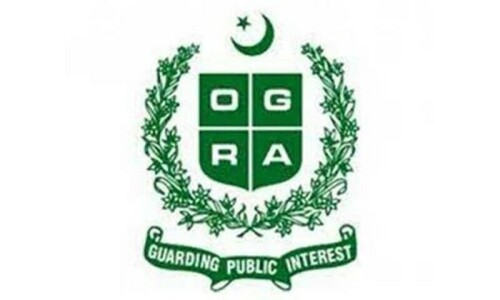ISLAMABAD: Despite a lapse of three months, the federal finance ministry is yet to approve the new textile policy which carries measures to increase country’s textile exports to $26 billion by the year 2019.
The policy was sent to the ministry in June for an approval by Finance Minister Ishaq Dar, but it was being delayed despite the fact that textile exports showed negative growth during the first quarter of the current year.
A well-placed source in the ministry of textile industry told Dawn that the five-year textile policy will carry support schemes worth Rs85bn in a period of five years.
The first five-year textile policy was unveiled in 2009, but there were major constraints in its implementation which came to an end on June 30. The new policy will be effective from July 1 focusing on value-addition.
A major part of the proposed textile policy was announced in the budget 2014-15 by giving cash incentives to the textile and clothing exporters. There are few infrastructure projects, like establishment of garment-weaving cities, ginning institute, etc., under the proposed textile policy as well, the source added.
Prime Minister Nawaz Sharif constituted a ministerial committee on energy for the textile sector in April, headed by Finance Minister Ishaq Dar. The source said so far not a single meeting of the committee had been held to address the energy issue faced by the textile sector.
According to the source, the textile industry ministry has sent eight reminders to the finance ministry for holding the meeting of the energy committee.
The energy issue, according to the source, was also taken up in the Economic Coordination Committee of the federal cabinet in which the Petroleum Ministry was asked to cooperate with the textile ministry.
“There was no cooperation from the petroleum ministry on the issue,” the source claimed.
After getting a lukewarm response from the finance and petroleum ministries, the textile ministry has sent a summary to the PM Secretariat to look into the issue, the source added.
“We are awaiting a response from the PM Secretariat for holding a meeting with the premier over the issue,” the source said.
The textile industry ministry predicted a steep decline in textile exports in the winter season because of further deterioration in supply of gas and electricity to the textile industry, especially in Punjab.
To look into the issues, the textile industry ministry called a meeting of Federal Textile Board on Oct 27 in Islamabad to discuss the performance of textile sector and the proposed textile policy.
An official statement issued by the textile ministry also showed concern on falling exports despite having zero-rated access to the European markets.
According to the statement, the Federal Minister for Textile Industry Abbas Khan Afridi has taken notice of declining textiles exports.
The minister also showed concern that after the grant of GSP+, instead of increase, textile exports have showed declining trend although it was expected that textile exports would increase by at least $1 billion during calendar year 2014.
During the first two months of current financial year (July-August 2014-15), textile exports have decreased by 5pc as against the corresponding period of previous fiscal year.
Yarn and cloth categories were the major losers in which exports decreased by 26pc and 13pc, respectively.
The readymade garments sector had a slight reduction of 2pc. The decrease in textile exports also made a negative impact on cotton prices.
As a consequence of energy shortage, the textile production capacity of various sub-sectors has reduced.
It is estimated that the impact of less availability of energy to the export-oriented textile sector means potential loss of around $2bn exports per annum which can easily be made to EU in the presence of GSP+.
The minister was scheduled to hold meetings with the textile sector stakeholders throughout the next week, including visits to Lahore and Faisalabad, added the statement.
Published in Dawn, October 17th, 2014














































